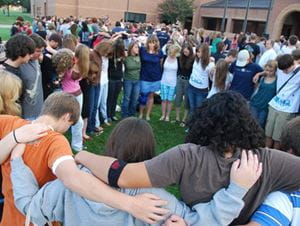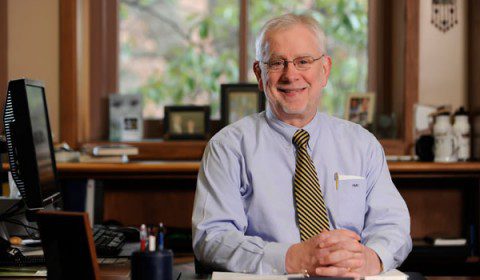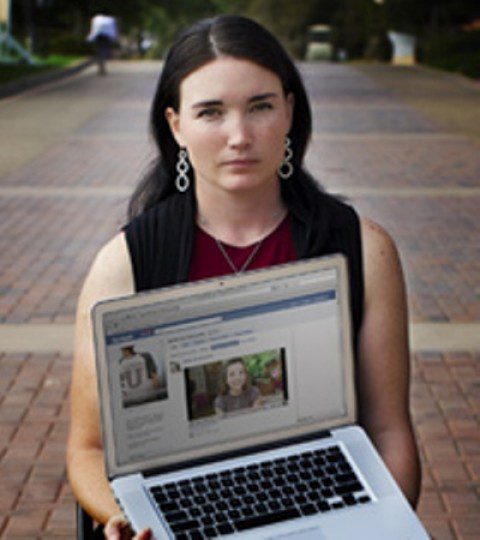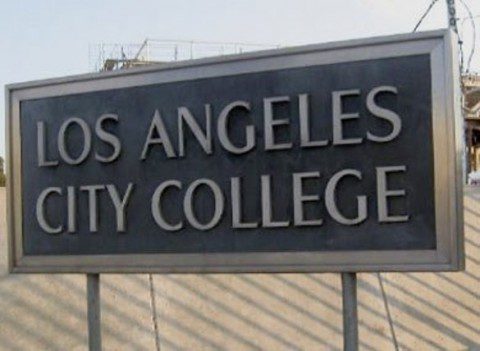
U.S. Supreme Court Justice Samuel Alito
Writing the minority opinion in a case involving Christian students’ rights, Alito warned 18 months ago against the majority’s ruling, saying it would be used as a “weapon” against Christians in U.S. colleges.
When Alito was dissenting in Christian Legal Society v. Martinez, he cautioned that not only was the majority’s decision seriously flawed, but that it would be used as a club against groups with viewpoints that are unpopular among the vast majority of college administrators – such as Christian faith.
He warned that kids in religiously and politically conservative groups — which college administrators disfavor — would be targeted, notes Robert Shibley writing for National Review magazine.
Christian Legal Society v. Martinez was a “sharply divided and startlingly wrongheaded decision,” agrees Shibley. “Those concerned about religious liberty on campus have known that the fallout was on its way. At Vanderbilt University, it has arrived — and it’s as bad as anticipated.”
“In Martinez,” he writes, “the Court determined that public institutions like the University of California’s Hastings College of the Law could require all student groups — even those based on shared belief, such as religious and political organizations — to admit members and even leaders without regard to their beliefs.
“Groups like the Christian Legal Society, whose constitution required students to have traditional Christian beliefs (such as in Christ’s bodily resurrection) and morals (no sexual activity outside heterosexual marriage), could be required to remove those provisions from their
Robert Shibley of National Review magazine
“To lack recognition is basically not to exist at all on today’s college campus,” notes Shibley.
So, how bad is it on college campuses these days?
The Daily Tar Heel student newspaper at the University of North Carolina reports that officials are investigating whether a Christian a capella singing group violated university policy when it voted to remove from membership a student whose views about homosexuality contradict the Bible’s teachings.
“According to the article,” writes Gregory Baylor, a human rights attorney for the Alliance Defense Fund, “Psalm 100 is a recognized student group, and the university’s non-discrimination policy thus applies to it.”
The student singing group Psalm 100
But because of the Martinez ruling, the singing group can’t kick out the member — who advocates the homosexual lifestyle.
Meanwhile in San Diego, “the Ninth Circuit issued a disappointing decision,” writes attorney Jordan Lorence, “against a Christian fraternity and sorority.”
San Diego State University allows campus organizations that it officially recognizes to exclude students who disagree with the message advocated by the group — unless the groups are religious. Why such
Because of the Martinez decision.
“San Diego State views it as ‘religious discrimination,’ in violation of the campus nondiscrimination policy, when a Christian group requires its officers or members to believe in Christianity,” writes Lorence.
“So that means the vegan club can exclude student deer hunters and those who advocate eating steaks, but the Christian groups must permit Buddhists and atheists to join.”
The case before the circuit court involve a Christian fraternity and sorority which declined to agree to the university’s nondiscrimination statement. As a result, the university rejected their applications to become officially recognized student organizations.
“That means the groups cannot meet in campus buildings for free, cannot set up tables in the main mall where students walk each day,” noted Lorence. “The Christian groups are in effect banished from the main avenues of communication with students and relegated to a second-class status.”
Incredibly, the circuit court upheld the university’s discriminatory policy, 2-1.
“Although the judges admitted that the policy as applied here treated the religious groups worse than non-religious student groups, it was constitutional because there is ‘no evidence that San Diego State implemented its nondiscrimination policy for the purpose of suppressing Plaintiffs’viewpoint.’” The precedent? Martinez.
“Judge Ripple, a visiting appeals court judge from Wisconsin,” notes Lorence, “reluctantly agreed with the ruling because of precedent for the Ninth Circuit. But in his concurring opinion, he urged the Supreme Court to take the case, and rule strongly in favor of religious liberty:
“The net result of this selective policy is therefore to marginalize in the life of the institution those activities, practices and discourses that are religiously based. While those who espouse other causes may support their membership and come together for mutual support, others, including those exercising one of our most fundamental liberties – the right to free exercise of one’s religion — cannot, at least on equal terms.”
But are Christian students really facing discrimination on college campuses?
Student Larinda King was astonished when Georgia’s Savannah State University suddenly shut down a student group called Commissioned II Love, one of the most popular clubs on campus. Administrators
Student leader Larinda King
Hazing, of course, has fallen into political incorrectness – it’s no longer acceptable to force freshmen to rub chocolate cake in each other’s hair and sing at the top of their lungs “I Feel Pretty” in order to get into a fraternity or require rookie athletes to scrub toilets with their toothbrushes or wear jockey straps on their heads to class, for example.
However, the “hazing” at Savannah State was nothing of the sort — instead a voluntary foot-washing ceremony, in which Christians for 2,100 years have followed Jesus’ example of showing humility and an attitude of service. Annually the Pope washes a fellow priest’s feet. Jesus did it at the Last Supper.
Stunned at the college’s action, King, who is the student president of Commissioned II Love, enlisted the National Litigation Foundation to sue Savannah State on her behalf, citing their violation of her group’s First Amendment-protected right to assemble and express religious faith. The school eventually agreed to a settlement that restored the club to its former place on campus and asserted the right of Christian organizations at any university to meet and act in accordance with their religious beliefs.
In Washington state, Beth Sheeran was a nursing student at Spokane Falls Community College when she spearheaded an effort by a
Nursing student Beth Sherran
“She had almost completed the extensive preparations when she learned the college was shutting down the event,” reports the website Speak Up. “Her determination to know why brought her face-to-face with the sometimes absurd objections of the faculty and administrators (“Washington is a pro-choice state, and we can’t use school grounds for a pro-life display.”) and their very real determination to silence free speech on campus. She and other club members were threatened with expulsion, should they so much as hand out flyers with pro-life themes.
Realizing that “the abuse of authority would also shut doors to the Gospel,” and worried that fear for their education might keep many Christian students from speaking the truth, Beth reluctantly decided to file a suit against the school district whose policies were being enforced at Spokane Falls and other colleges and universities throughout the area.”
The district settled the case, agreeing to change its restrictive speech policies and restore the First Amendment protections of all students.
In November, 2008, shortly after California voters had voted to define marriage as between one man and one woman, Los Angeles City College student Jonathan Lopez addressed the topic in his public speaking class. He gave reasons for his support of traditional marriage as only properly between one man and one woman.
Los Angeles City College
“Reportedly, Lopez’s Professor abruptly stopped him, calling him a ‘fascist bastard’ in front of the class and then prohibited him from finishing his speech,” writes Randy Sly for the website Catholic Online.
“Later, the student approached the professor, John Matteson, to inquire as to his grade. The faculty member then allegedly told him to “ask God what your grade is.” Lopez also reported that Matteson threatened to have him expelled when he complained about the
Again, the Christian student had to go to court. Lopez describes himself as a committed Christian who must speak out openly on issues as they relate to his deeply held faith.
“He was expressing his faith during an open-ended assignment, but when the professor disagreed with some minor things he mentioned, the professor shut him down,” attorney David J. Hacker told the Los Angeles Times.
Hacker cited a 2006 case where Missouri State University tried to discipline a Christian social-work student who refused to support child adoptions by same-sex couples.
In the wake of the Martinez decision, the Ohio state legislature actually passed a law against such policies at its state schools – discrimination based on religious beliefs.
However, the Supreme Court’s seeming endorsement inspired Vanderbilt University “to jump in with both feet,” writes Shibley. “Last fall, it announced that a new ‘all comers’ policy would soon be enforced, and after months of avoiding questions from nearly everyone under the sun, including the National Association of Evangelicals, the U.S. Conference of Catholic Bishops, and 23 members of Congress, Vanderbilt finally held a ‘town hall’ discussion on its decision on January 31.
“While the discussion was scheduled to last 90 minutes, religious students showed up with so many concerns that it ran for three hours and was so packed that many were turned away at the doors.
“A video of the meeting leads the viewer to a startling revelation: Vanderbilt administrators are adopting the policy for the purpose of undermining certain religious beliefs, and, as usual, evangelical and Catholic Christians are the main targets.”
“Don’t take my word for it,” writes Shibley. “Take the word of Richard C. McCarty, Vanderbilt’s vice chancellor for academic affairs and provost. Excerpts from this exchange at the meeting should leave any traditional religious believer in shock:
“STUDENT PALMER WILLIAMS: I am a little confused by the fact that under your policy, I can gather with a group of my friends, or a group of like-minded people, I can state my beliefs, but as soon as I go as far as writing down what we believe in, and then try to live by those beliefs as a community on campus, then I’m not allowed to do that.
“VICE CHANCELLOR MCCARTY: What I’m going to challenge you to do, to be open to a member that doesn’t share your faith beliefs who could be a wonderful member of CLS, maybe even a leader. But we’re not saying you have to vote for that person. We’re simply saying that person, who maybe does not profess allegiance to Jesus Christ as his or her Lord and Savior, should be allowed to run for office in CLS. Maybe it’s not chair or president, maybe it’s a person who is amazing at social outreach. It would still be consistent with your goals of serving the underserved with legal advice and legal services, but maybe isn’t Christian but they endorse what you’re trying to do. Give that person a chance. . . . Now let me give you another example, and this would affect all of you. I’m Catholic. What if my faith beliefs guided all of the decisions I make from day to day?”
At this point, the crowd applauded the idea that they should live according to their faith. Annoyed, McCarty corrected them for such
Vanderbilt University's Richard C. McCarty, right
“No they shouldn’t! No they shouldn’t!” he responded. “No they shouldn’t! No they shouldn’t!”
The video shows vocal disagreement from crowd.
“Well,” continues McCarty, “I know you do, but I’m telling you that as a Catholic I am very comfortable using my best judgment as a person to make decisions. As a Catholic, if I held that life begins at conception, I’d have a very big problem with our hospital. Right? Would I not? . . . I would, but I don’t. . . . We don’t want to have personal religious views intrude on good decision-making on this campus. They can guide your personal conduct, but I’m not going to let my faith life intrude. I’ll do the best I can at making good decisions, but I’m not going to impose my beliefs on others, not going to do it.”
“Yes,” reports Shibley, “you just heard the vice chancellor of Vanderbilt University tell students that they shouldn’t let their religious views intrude on their decision-making. That their religious beliefs should not guide their day-to-day actions. That people who reject faith in Jesus Christ should be given a chance as leaders of a Christian group.”
That’s what Christian kids are encountering today.
Just as Justice Alito feared.








